10 Signs That Help Recognize Toxic Relationships at the Very Beginning
If you instantly fall in love without really knowing a person, if you can’t stop thinking about someone, if your mood depends entirely on whether your love interest called you today, then you are prone to unhealthy emotional dependence. It is usually a trait of people who don’t have enough love for themselves and feel the need to seek it from the outside. It turns into a vicious circle of toxic relationships, but, fortunately, there is a way out of it.
Emotionally dependent people put their partner on a pedestal and build their whole lives around them. They try to either completely control their partner, or they play the role of the victim while they actually derive pleasure from their own suffering.
Psychotherapist Darlene Lancer writes that true love and emotional dependence are different things and it’s crucial to learn how to tell them apart.
We collected alarming signs that indicate the beginning of unhealthy affection. Don’t let yourself fall into the trap of toxic relationships.
10. You immediately think that you have found the love of your life.
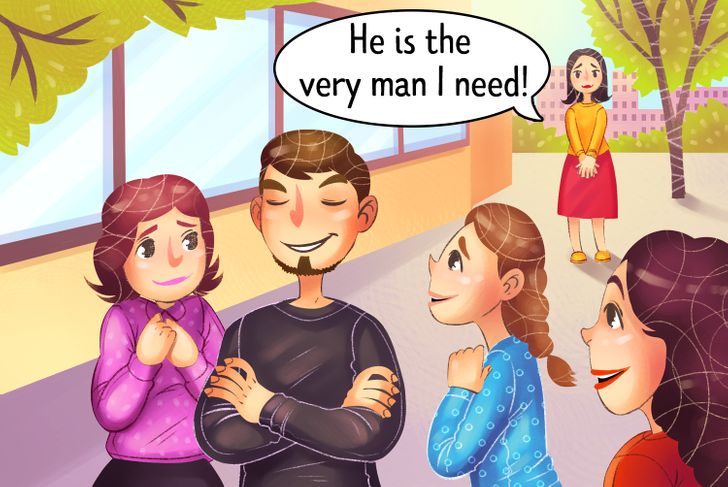
If you find yourself in such a situation, take a break every few days to be on your own and do something that distracts you from thinking about this person.
9. You idealize your partner too much.
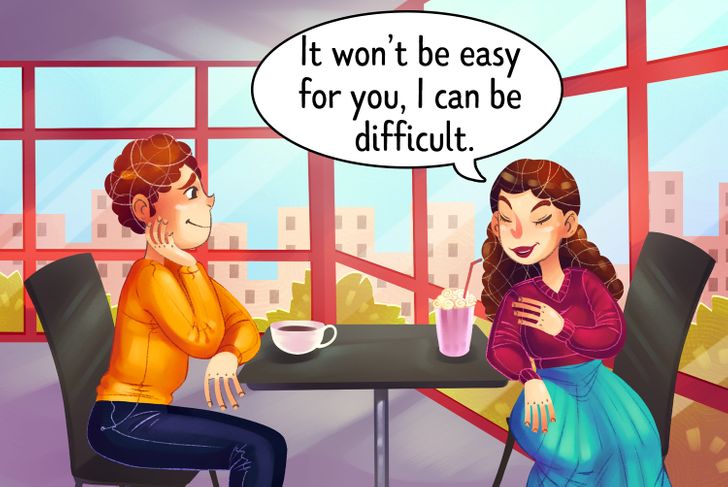
There is no need to selflessly reassure people that, “It’s all nonsense! We’ll manage!” When someone throws in “warnings” like these, they actually mean that they don’t think that you’re right for them and they don’t want you around or that they’re ready to continue the relationship only on their terms. These aren’t things that someone who is in love would be feeling or saying, so if you find yourself hearing such phrases more often then not, it may be necessary to either address the issue or consider whether or not you need to be in such a relationship.
8. You neglect friends to please your partner.
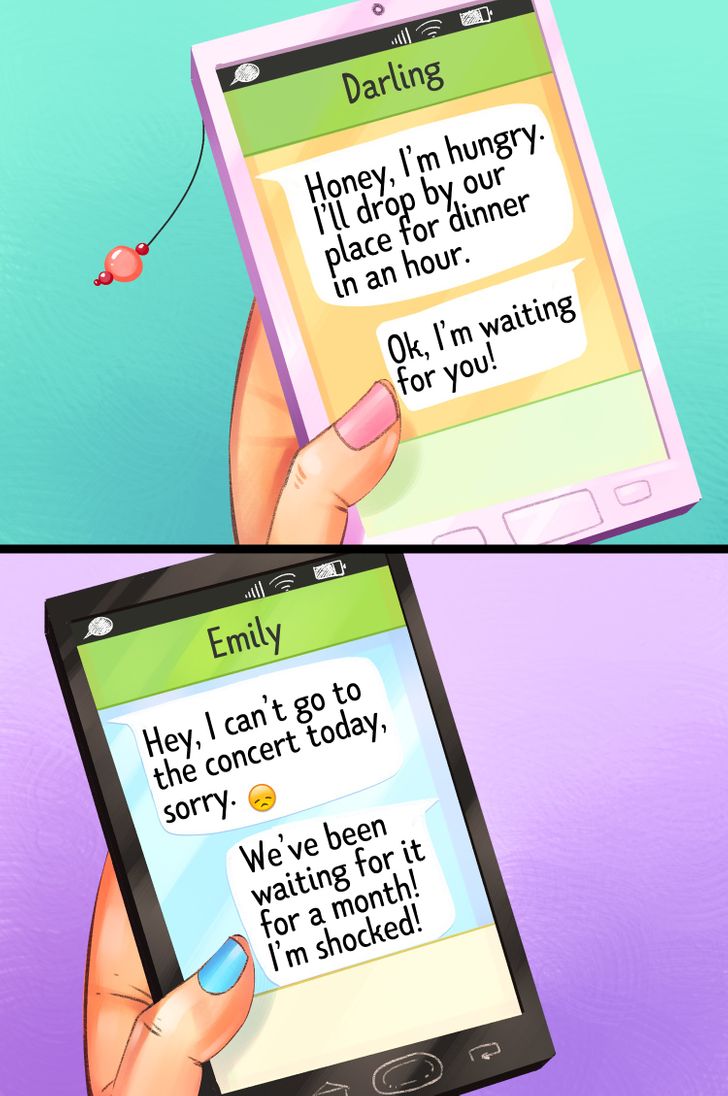
Your friends can also have certain feelings about the person you’re seeing, and these feelings are different from yours since their thoughts aren’t clouded by emotions. So it’s better to introduce your partner to your friends early on. Perhaps they will notice something that you haven’t and keep you from immersing yourself in a toxic relationship. If your partner does not want to get acquainted with your friends and relatives, this is a warning sign of the fact that they don’t feel that the relationship is serious.
7. You forget about your hobby.
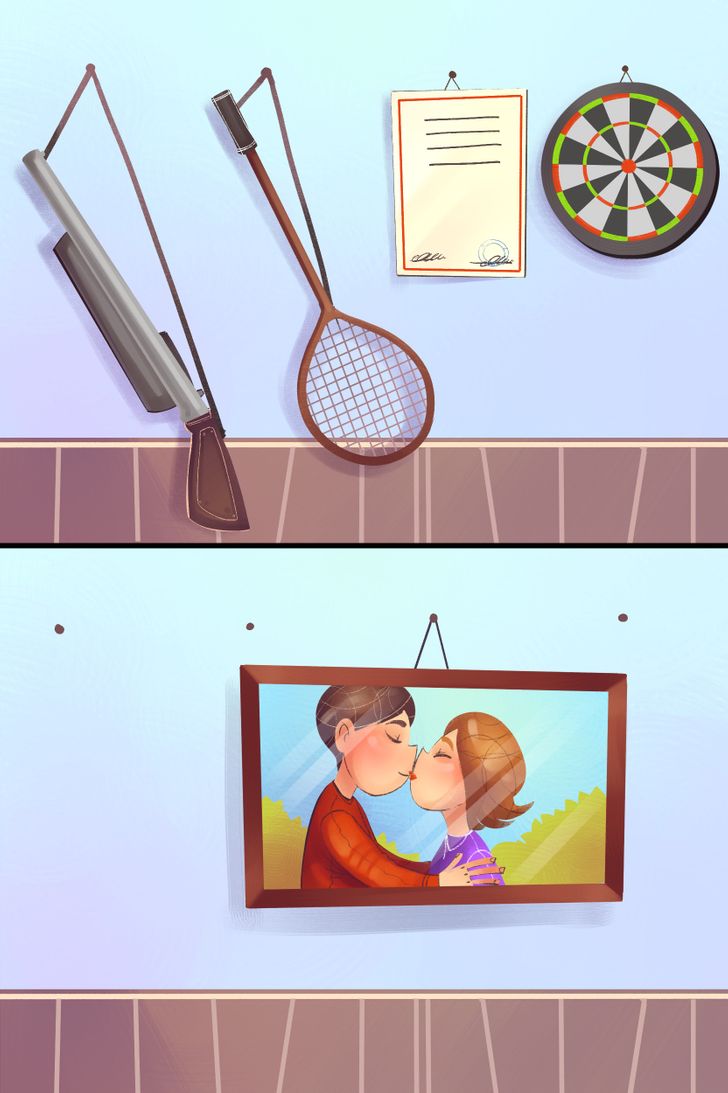
An enthusiastic and active person who is interested in many different things is very attractive as a partner. Don’t make your loved one the center of your universe. It’s important to understand that it’s unfair to your partner if you completely depend on them for your happiness, your well-being, and your overall mood.
6. You turn a blind eye to alarming signals.
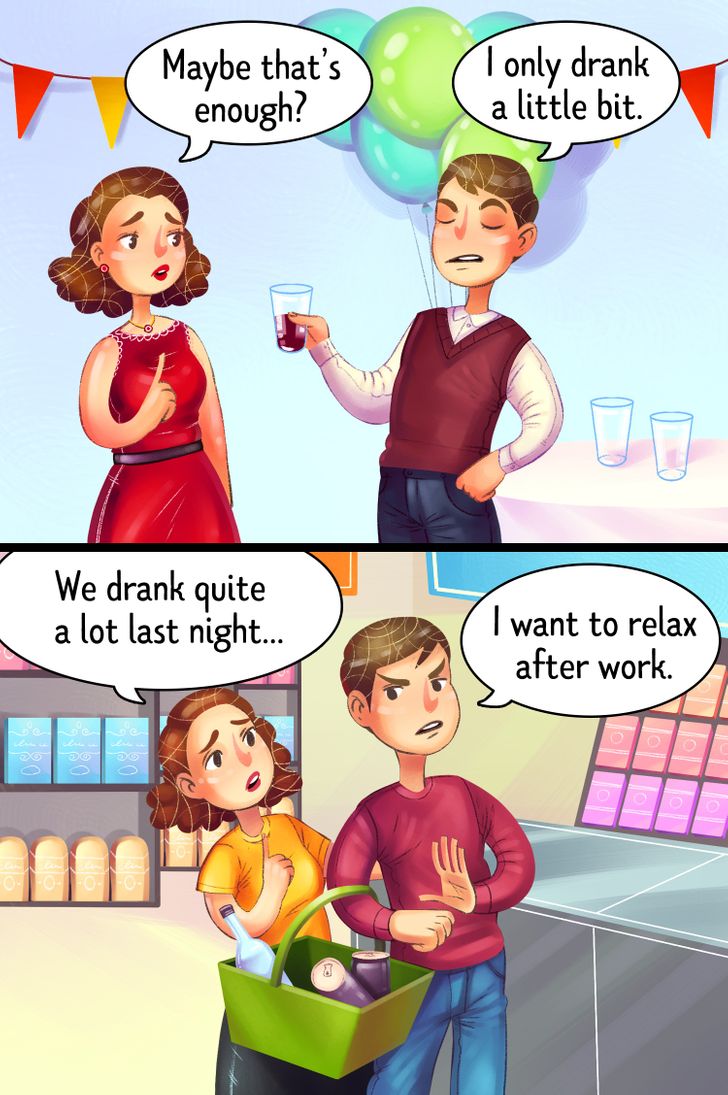
Don’t feel the need to justify your partner’s actions against you by his childhood traumas, his situation at work, or issues that he’s experiencing in his family. There’s no need to be your partner’s savior. If you’re constantly finding yourself playing the role of the victim in your relationship, you need to figure out why.
5. You unreservedly trust the opinion of your partner.
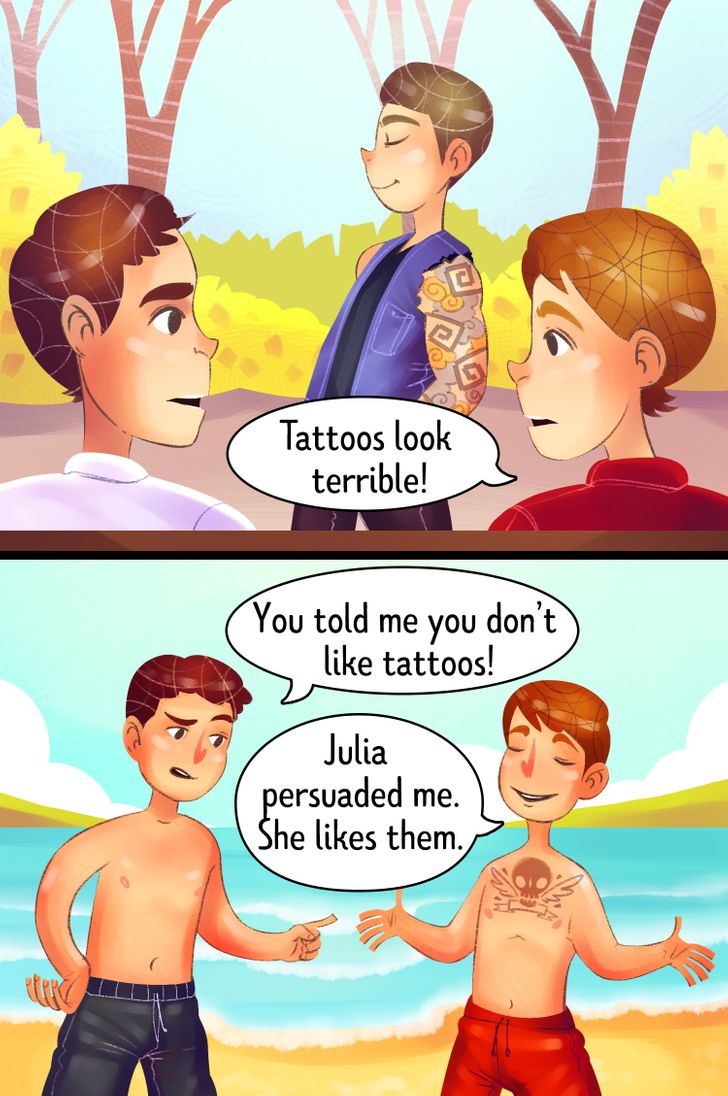
You risk becoming your partner’s shadow and this will not only lead to a series of health issues, but it will cause your partner to lose interest in you.
4. You feel incredibly jealous over every little thing.
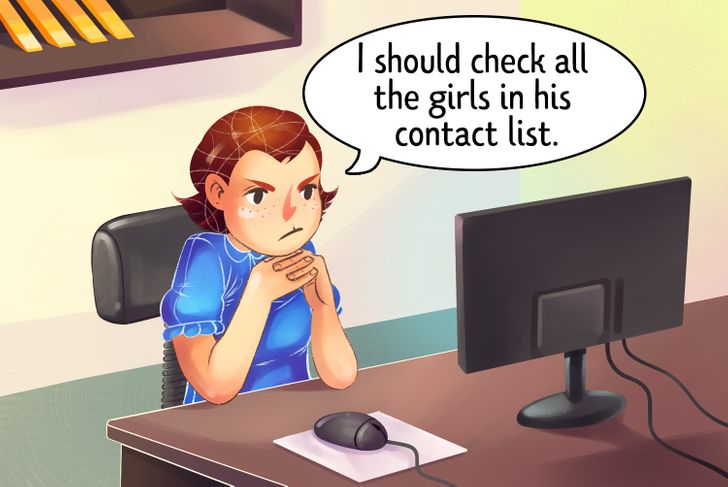
There’s another side to the issue of jealousy: there may be an actual reason to be jealous, but instead of hearing the desired, “I’m sorry. I didn’t think it would hurt you. It won’t happen again…” you keep hearing the same phrase in an agitated tone, “It doesn’t mean anything.” If you find yourself dismissing this and convincing yourself and others that your relationship is strong and healthy but you’re plagued with fears and doubts, then you may need to reconsider some aspects of your relationship.
3. You can’t stand it when your partner isn’t around.
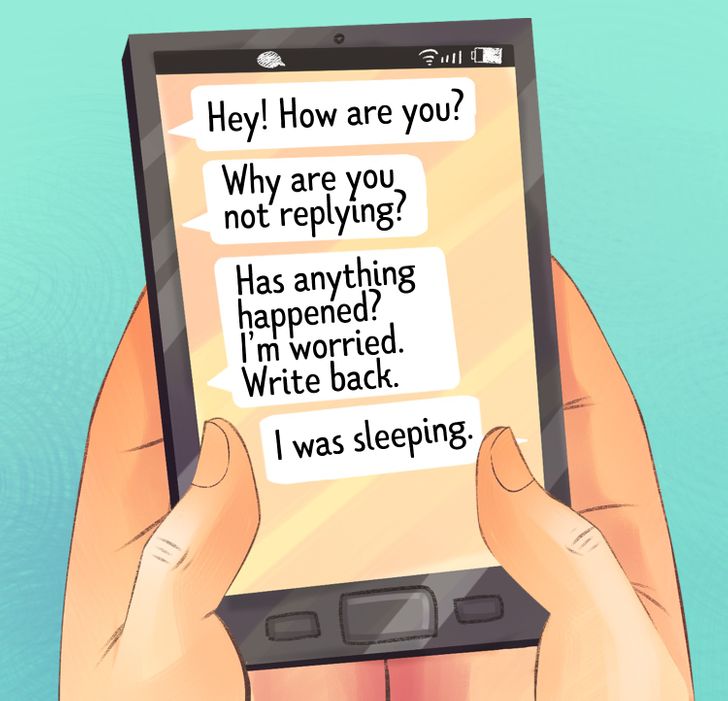
Try not to concentrate on negative thoughts like, “What if they’re with someone else?!” Because it’s quite possible that your partner is busy. It could be that they’re hanging out with a friend or someone from work, but that’s something that they should neither hide nor ask permission for. Your anxiety won’t change the situation for the better and will definitely only make it worse. Don’t fill all of your free time with thoughts of your partner. Focus on your own responsibilities and things that make you happy and this will lead to your partner being more interested in you.
2. You justify your partner’s terrible behavior.
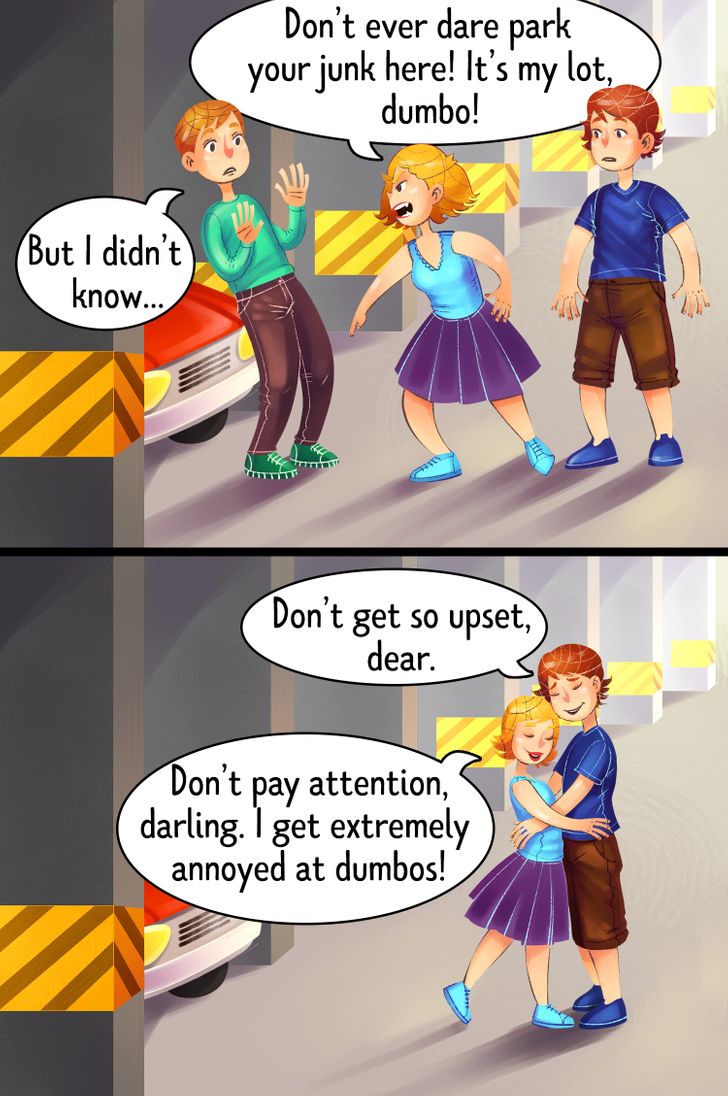
If your partner acts kind and attentive toward you on your first date, but he then suddenly starts to shout at the waiter for mixing up the dishes, then this is a warning sign. When the honeymoon phase of your relationship passes, it could be you who ends up having to listen to your partner’s insults when it takes you 20 minutes to get ready instead of 10.
1. You can’t just say, “No.”
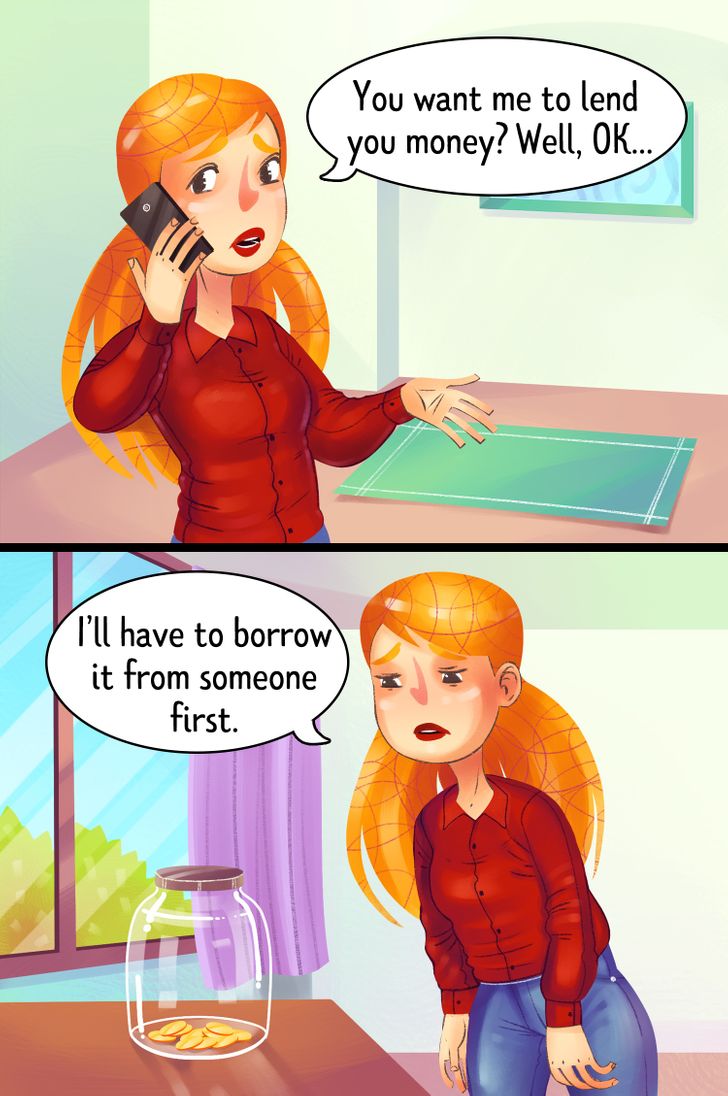
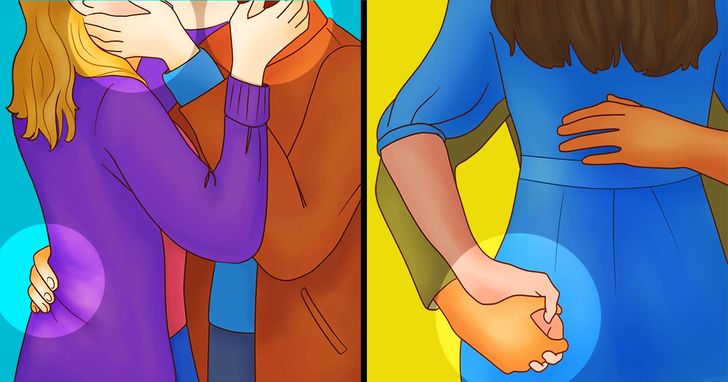
The psychologist Olga Chizh gives simple advice on how to help yourself when emotions and feelings literally overwhelm you.
1. Don’t place the responsibility of your emotional state on your partner. You are the only person responsible for it.
2. Don’t obsess over what your beloved one is doing, what their words meant, how to understand their actions, etc. Don’t let negative fantasies and speculation torment you. Go back to the state of being “here and now” more often. It can really help to concentrate on your breathing.
3. Locate a comfortable place in your body and mentally put an “internal observer” in that area. This is a part of you that will preserve objectivity in any situation and won’t let emotions get the best of you. Look around and see the situation through the eyes of the “internal observer.” If you’re feeling emotionally overwhelmed, remember that those feelings and the feelings that you’re experiencing toward your partner at that moment do not define the entirety of your life.
4. Look for resources: what can cheer you up and distract from obsessive thoughts about your partner? A cup of coffee, a good film or a book, exercise, a hot bath, a conversation with a friend? Any way to get you out of your head is good.
If nothing helps and you feel that you can’t get out of a complicated and painful relationship, don’t hesitate to turn to a professional therapist.
Have you ever experienced an unhealthy emotional dependence in your life? How did you manage to cope with it? Share with us in the comments below!